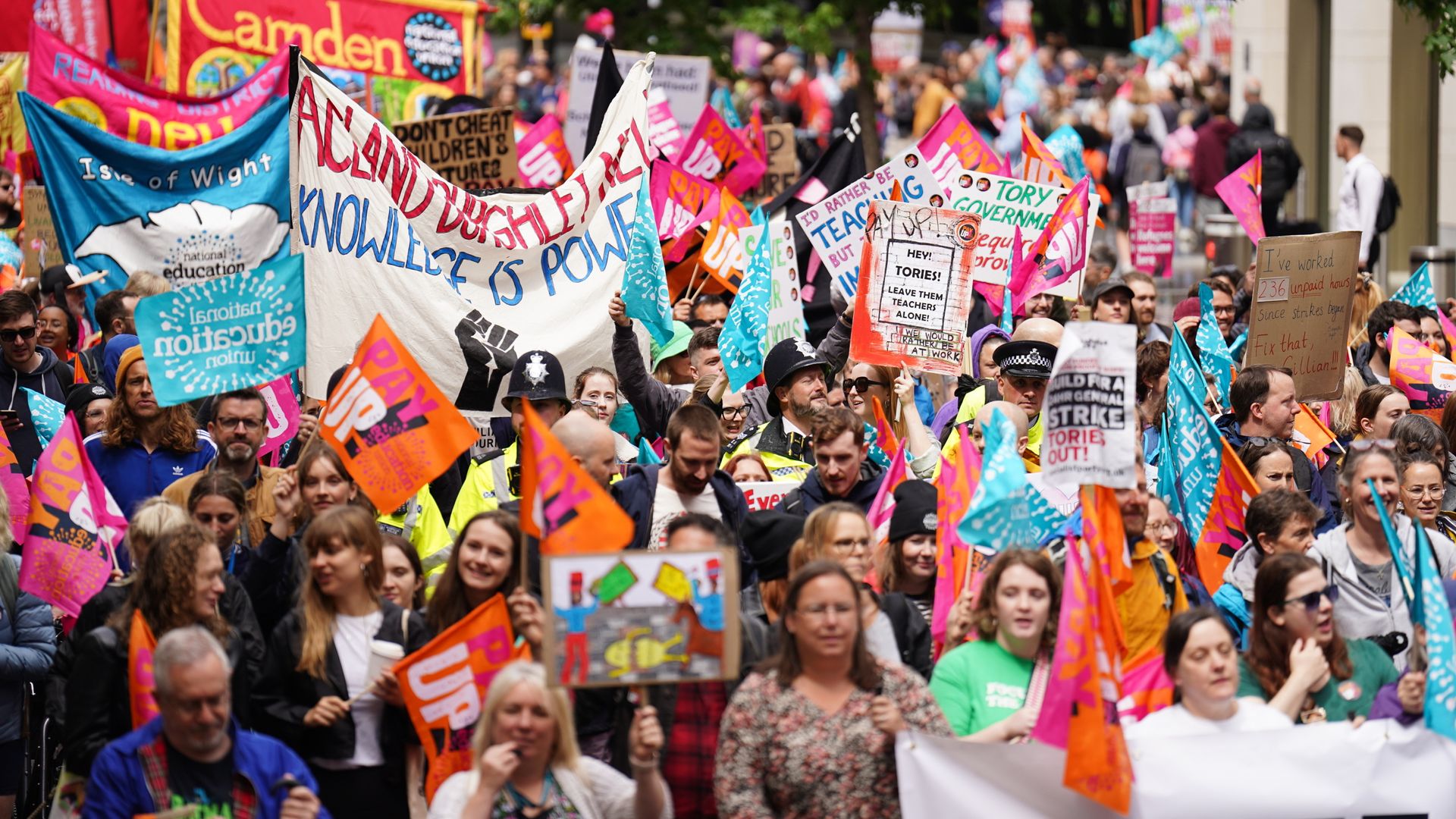The government has confirmed it will repeal Conservative-era legislation which aimed to limit unions’ ability to strike.
The Strikes (Minimum Service Levels) Act 2023 sought to make various sectors provide a minimum level of service when they took industrial action.
It came in response to an unprecedented wave of walkouts by hundreds of thousands of public sector workers over pay, jobs and conditions.
Politics latest: Minister hits back at Elon Musk over UK riots
The bill was criticised at the time of passage as being anti-union, with Labour promising to repeal the act if they won the election.
The new government has now set out its plans to unpick the laws through the Employment Rights Bill – which will be introduced in the first 100 days.
Ministers said the measures did not resolve a single strike and only served to inflame tensions, with widespread industrial action in the NHS alone costing £1.7bn last year.
Deputy Prime Minister Angela Rayner said: “Attempting to clamp down on the fundamental freedom of working people has got us nowhere and this was targeted at sectors who dedicate their lives to serving us all.
“That’s why we’re scrapping this pointless law and creating a new partnership between business, trade unions and working people through our New Deal.”
She added: “Repealing this legislation is the first part of our plan to reset industrial relations so they are fit for a modern economy.”
Ms Rayner and Business Secretary Jonathan Reynolds have written to the government departments with sectors most impacted by strikes: education, health, transport, the Home Office and energy, as well as Welsh and Scottish governments, to give a “clear message” that legislation will be repealed.
They have also written to all 12 metro mayors across the country to start engaging with local employers on the change.
The move is part of a wider effort to improve industrial relations, seen as crucial to restoring trust and efficiency in public services and boosting economic growth.
Read More:
What will Labour’s first priorities be in government?
Labour pulls £1.3bn funding for ultra-fast supercomputer and AI projects
Over the past two years, strikes have brought the rail network to a standstill, resulted in school closures and led to hundreds of thousands of appointments and operations being cancelled.
Health Secretary Wes Streeting has already attempted to end the long-running dispute with junior doctors, offering them a 22.3% pay rise over the next two years.
Please use Chrome browser for a more accessible video player
The government has promised a “New Deal for Working People” including banning exploitative zero-hours contracts and ending “fire and rehire” practices.
Paul Nowak, general secretary of the TUC, said it was time for a “new, grown-up era of industrial relations” as he welcomed the move to repeal “vindictive” MSLs.
He said: “It speaks volumes that not one single employer to date has issued a work notice ordering staff to break a strike. They too can see how toxic these laws are,
“The new government is right to repeal this spiteful legislation. It’s time for a new, grown-up era of industrial relations.”
Tory shadow business and trade secretary Kevin Hollinrake said: “By surrendering to their union paymasters, Labour are showing us who is really in charge.
“We put the interests of the British public first through our Minimum Service Levels Act, making sure that the militant unions could not cripple the railways, schools or the NHS. But Labour are placing access to emergency care and schools staying open at risk just to appease the unions.
“Angela Rayner should be focusing on the urgent issues the country is currently facing.”






















